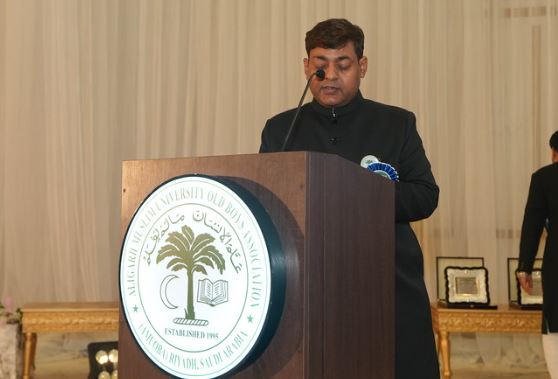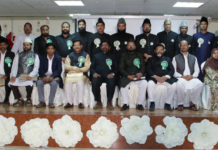In a commendable instance of effective public engagement, Mr. Mohd. Iqbal Abid has successfully addressed a critical issue through the Centralized Public Grievance Redress and Monitoring System (CPGRAMS). His grievance, registered under the reference DSEHE/E/2024/0008228, highlighted concerns about changes to the eligibility criteria for the JEE (Advanced) examination—specifically, the number of attempts allowed.
The grievance was reviewed thoroughly by the Public Grievance Cell of the Indian Institute of Technology, Kanpur (IITK), which oversees key aspects of policy and governance related to this prestigious examination. After careful consideration by the Joint Admission Board (JAB) 2025 during their November 15, 2024, meeting, the board decided to restore the earlier eligibility criteria used since 2013. This decisive action supersedes the changes announced in the Press Release dated November 5, 2024, offering relief to numerous aspirants.
The Role of AMUOBA Riyadh and Mr. Iqbal Abid
This achievement wouldn’t have been possible without the relentless efforts and vision of Mr. Iqbal Abid, a dedicated advocate for educational equity and access. Mr. Abid’s initiative not only underscores the importance of public participation in decision-making processes but also serves as a beacon of hope for students across India.
His contributions, supported by the dynamic network of AMUOBA Riyadh (Aligarh Muslim University Old Boys’ Association), highlight the organization’s commitment to fostering excellence in education. AMUOBA Riyadh has consistently stood by the principles of advocacy and collective action, ensuring that the voices of students and alumni are heard on platforms that matter.
A Step Forward for Educational Aspirants
This decision is a significant victory for students who aspire to crack one of the most competitive examinations in India. The restored eligibility criterion not only ensures fairness but also aligns with the broader objectives of inclusivity in higher education.
Mr. Mohd. Iqbal Abid’s determination and AMUOBA Riyadh’s unwavering support set an inspiring precedent for addressing systemic challenges. Together, they exemplify how individuals and communities can bring about meaningful change by leveraging the right platforms.







